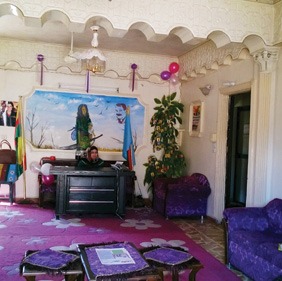
This article is a preview from the Summer 2019 edition of New Humanist
I Will Never See the World Again (Granta) By Ahmet Altan
One morning in Turkey the expected happened: Ahmet Altan was arrested. His brother Mehmet Altan was arrested too. They had each packed a bag and left it by the door in preparation and were unsurprised when, just before dawn, the police came and took them away. Exactly 45 years earlier their father had been arrested in the same way. Their father was a journalist and so are they. It would have been far more strange not to be arrested.
On 15 July 2016, members of the Turkish armed forces attempted an overthrow of President Recep Tayyip Erdoğan’s government. They cited the increasingly authoritarian nature of Erdoğan’s presidency and a dismantling of the officially secular nation-state formed by Mustafa Atatürk in 1923. The coup was a failure. A sweeping purge ensued, with thousands of army officials, civil servants, teachers and journalists put in prison.
Having been a dissenting voice for many years, Altan was not surprised at being arrested. Since Erdoğan took power, democracy and freedom of speech in Turkey, already shaky, have become even less certain. Altan was, however, disappointed by the vagueness of his charge – transmitting “subliminal messages” on a television show the night before the coup – and upset by modern Turkey’s vertiginous descent into nightmarish absurdity.
I Will Never See the World Again is Altan’s memoir detailing his arrest and imprisonment. It depicts a parallel world in the prisons and courtrooms of Turkey, where words are meaningless and action impossible. As the judicial process becomes more absurd and Altan’s release less likely, he finds the only escape is his imagination and the ability to write.
Altan descends into a ghostly underworld. “Here in depths without light, the police, with each of their gestures and words, carved us out of life like a rotten, maggot-laced chunk from a pear, severing us from the world of ‘the living.’” He and the other prisoners are in between worlds, in a narrow gap between the living and the dead.
The atmosphere is suffocating: “The heat was brushing my face like a furry animal. My forehead was sweating. I was having difficulty breathing. The place was so narrow, airless.” Altan conjures a floating world of disembodied souls: eyes staring from the blackness; voices from nowhere; masses of men who meld into one, strewn across the floor.
The raging nothingness is palpable. How curious it is never to encounter a mirror and see one’s own face, just hands and feet. Not speaking but wanting to scream.
The world disappears farther from view as court proceedings begin and Altan finds himself in a Kafkaesque nightmare. There are long periods of waiting and bizarre bouts of questioning. The charge against him is suddenly changed; when he asks why, he is told: “Our prosecutors like using words the meanings of which they don’t know.” Unexpectedly, Ahmet is released. Later the same day he is arrested again.
Altan’s prison life is surreal. After an intimate check-up by the prison doctor Altan asks her specialism – he is told that it is gynaecology. He has his clothes altered by the barber and his hair cut by the tailor. Altan keeps one eye on the comedy of his situation and one on the horror. He watches, aghast, as the judge asking him inane questions bleeds from one ear, unconcernedly building a little mountain of soiled tissues.
On leaving the courtroom, Altan is frozen in his tracks by the sight of a corridor full of pink folders. He and the officers wade through the sea of accusations, betrayals, arrests, and prisoners filed and forgotten within them, kicking them aside as they go.
“I am a novelist living his novel,” Altan remarks, recalling his book Like A Sword Wound (first published in 1998), in which a character also waits for a verdict. Although he says this forlornly, with self-mocking irony, it is in this realisation that a seed of hope is planted. If his writing has brought him here then his writing can get him out. His imagination is still free and it dissolves the walls around him. Altan muses on life, death, religion, time, evil and happiness. And, of course, literature.
In Turkey, as in many other countries, writing is a dangerous occupation. Altan has spent his working life skating on thin ice: he has had over 200 court cases against him and carries a gun for self-defence. However, it is just as easy to be arrested for what you didn’t write. After all, “subliminal messages” are hard to disprove. Altan is damned both ways.
Down there in the underworld of Turkey’s courts and prisons where words have little meaning, but can exact a high price, Altan reflects on his motives. Why is he here? Is it his vanity or his love of truth? Should he just keep quiet? Is it, in the end, worth it?
The answer he finds is “yes”. And he is here because he couldn’t be anywhere else. Altan is on the frontline of a battlefield that includes everyone. No one is exempt. Altan is clear-eyed and resolute: “I will write in order to be able to live, to endure, to fight, to like myself and to forgive my own failings.” The only way to live is to keep writing; to keep being heard.
This book is both chilling and heartening, a message from a parallel universe not as distant as we might think. With humour, passion and remarkable equanimity Altan reminds the reader of what, and who, is at risk. And what is worth fighting for. In 2018, after two years of detention, Ahmet Altan and his brother Mehmet were sentenced to life imprisonment. It is a dark time for Turkey and for Altan, but as he notes at the end of this fortifying book: “I can write even in the dark.”

